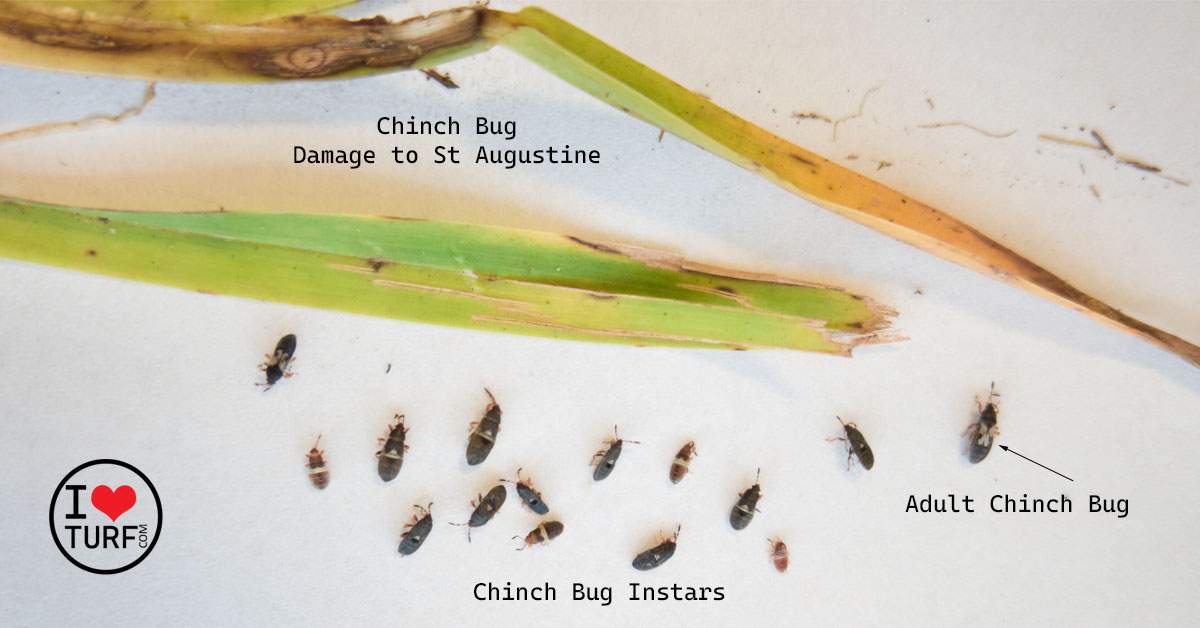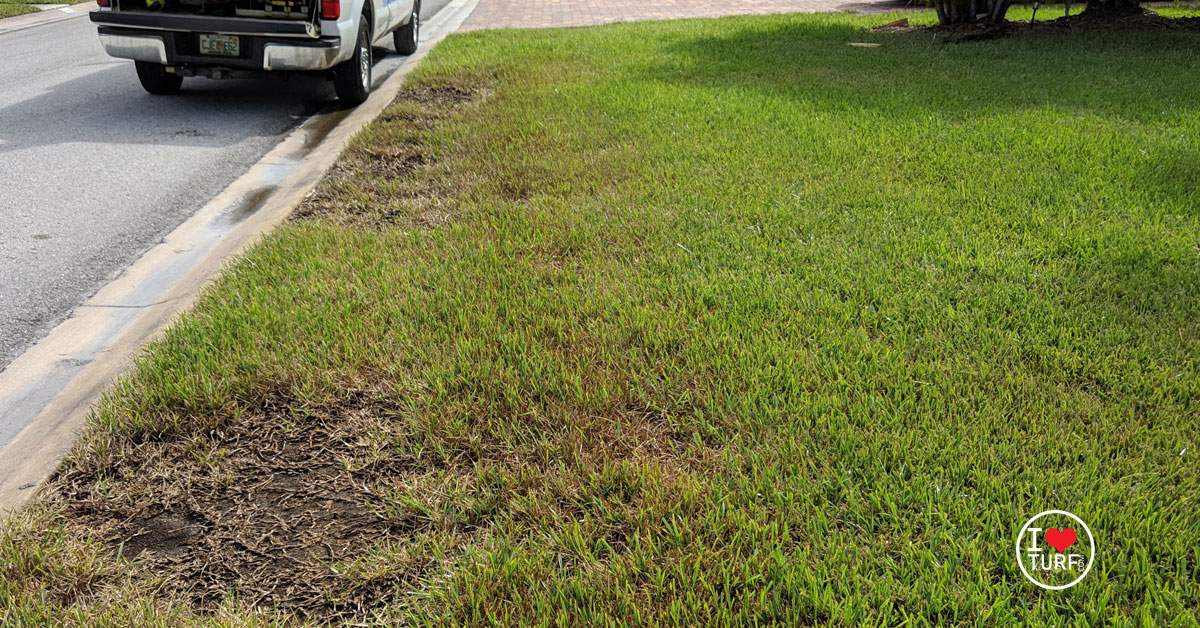
St Augustine's #1 Pest: Chinch Bugs
The most widely used turf species in Pinellas County is St Augustine grass. It has a lot of great qualities: dark green color, thick uniform growth, easy to establish, and more. But it has this one huge downside: chinch bugs. Why are they so troublesome? Because they are lethal. Chinch bug damage is so complete, that there is no recovery - the lawn is dead and must be replaced.
How to Recognize Chinch Bugs
Chinch bugs are small, little 1/8" - 1/4" bugs that live in your lawn near the base of the leaf. They kill the grass by their feeding and injecting a toxin into the leaf causing the leaf to turn banana yellow and then paper bag brown. Finding chinch bugs in the lawn is tough - they are small and fast and when exposed to light they make a beeline for the nearest cover.

How to tell if you have Chinch Bugs
Chinch bug damage mimics water stress and water stress mimics chinch bugs. Many confuse the two. Often what was water stress often turns into a chinch bug problem. Poor irrigation will trigger a chinch bug population explosion and what didn't die from water stress, the chinch bugs will kill. Rarely will you find chinch bug damage in a well-irrigated lawn.
Chinch bug damage does have a few distinct characteristics. Chinch bug damage will have yellow leaves between dead and green grass areas. The dead grass is paper-bag brown in color and has a scorched look to dead plants. Often there is an incomplete kill - you'll always find a few sprigs of surviving grass in the dead grass like wounded survivors on a battlefield. Although chinch bugs can attack anywhere in the lawn, they will most likely start along the edge of a sidewalk or driveway.
What to do If you have Chinch Bugs
Should you suspect chinch bugs, first check the irrigation and repair as needed and then apply a good insecticide to the whole area and beyond the dead grass by 10 feet. Don't be surprised if the dead areas grow after treatment - even though the chinch bugs are dead - their toxin lives on and takes days to kill, spreading for days after treatment.
The best advice is to get a good lawn spraying company - if you had chinch bugs once, you'll always have them.




